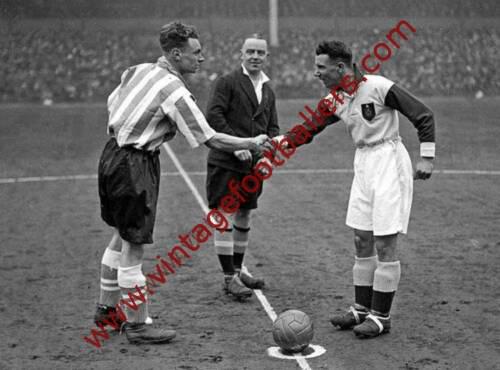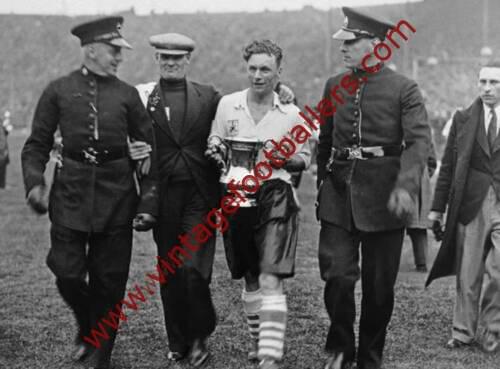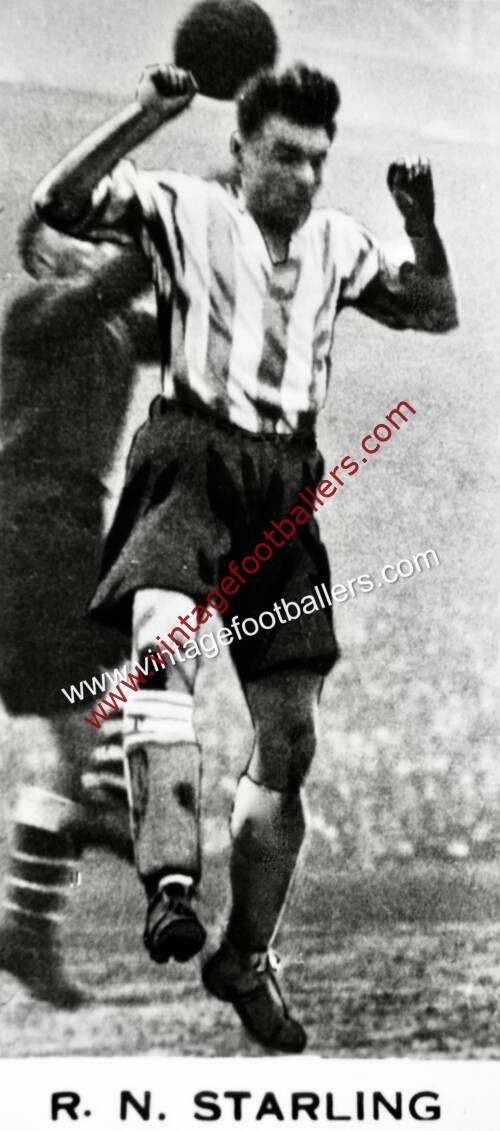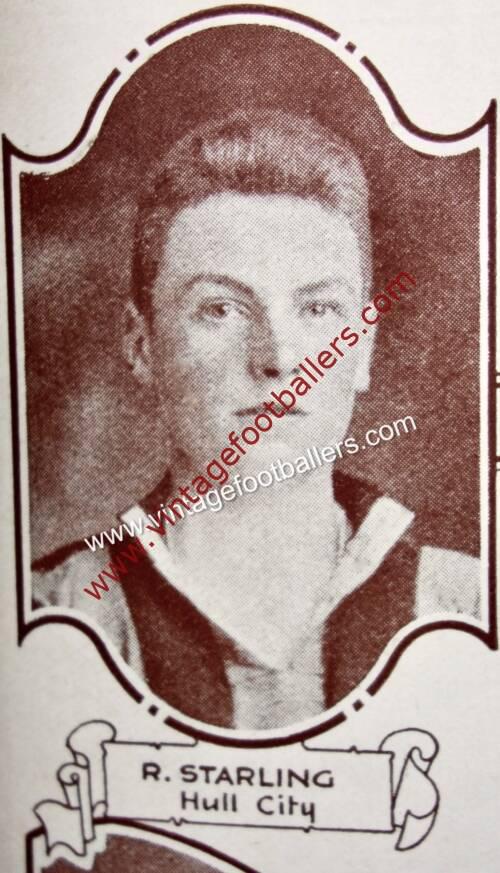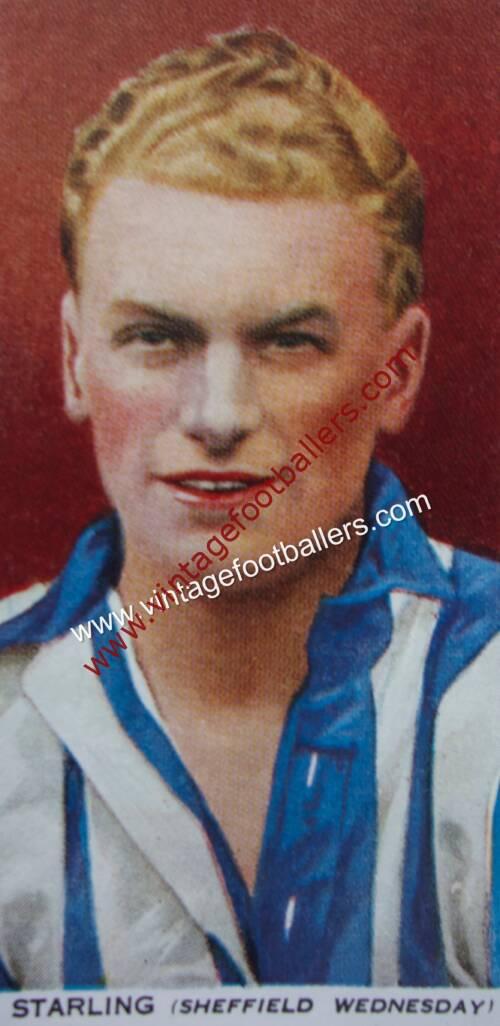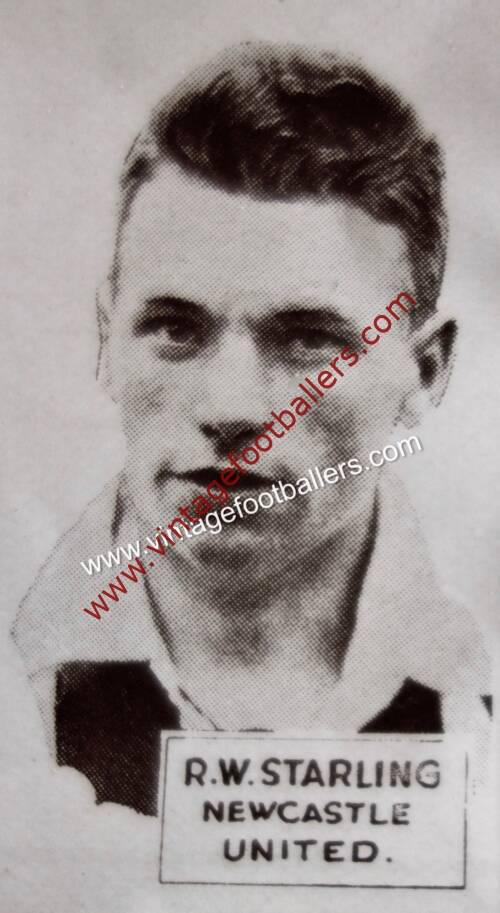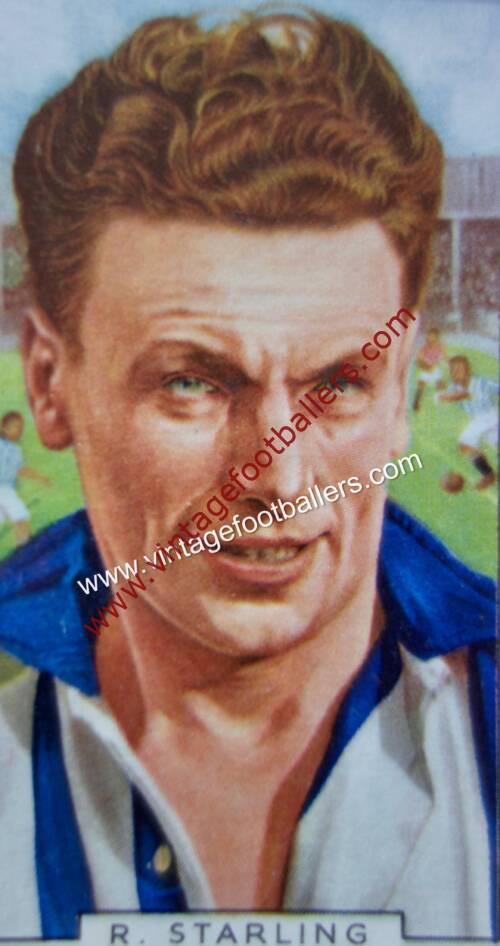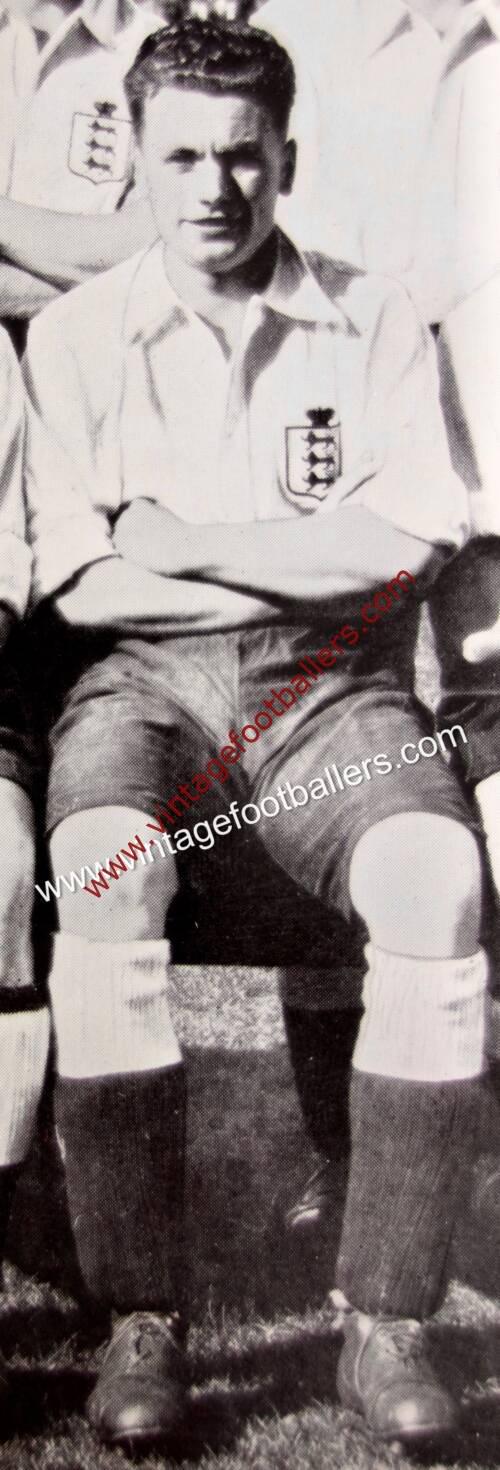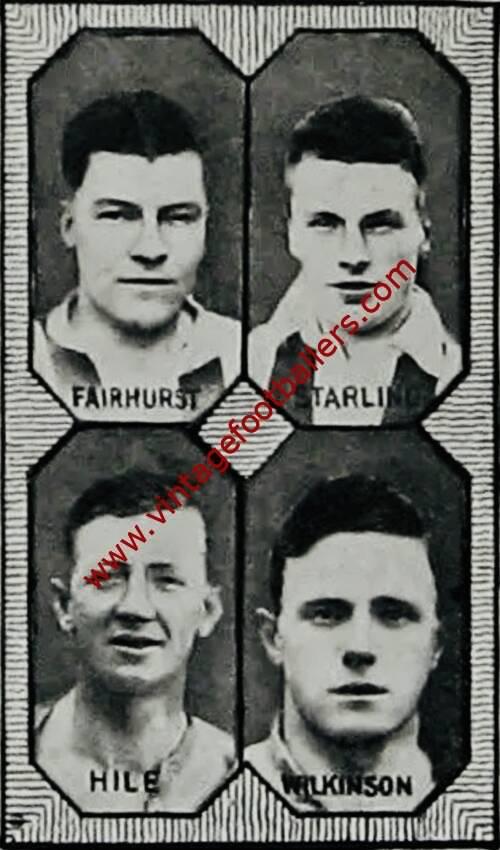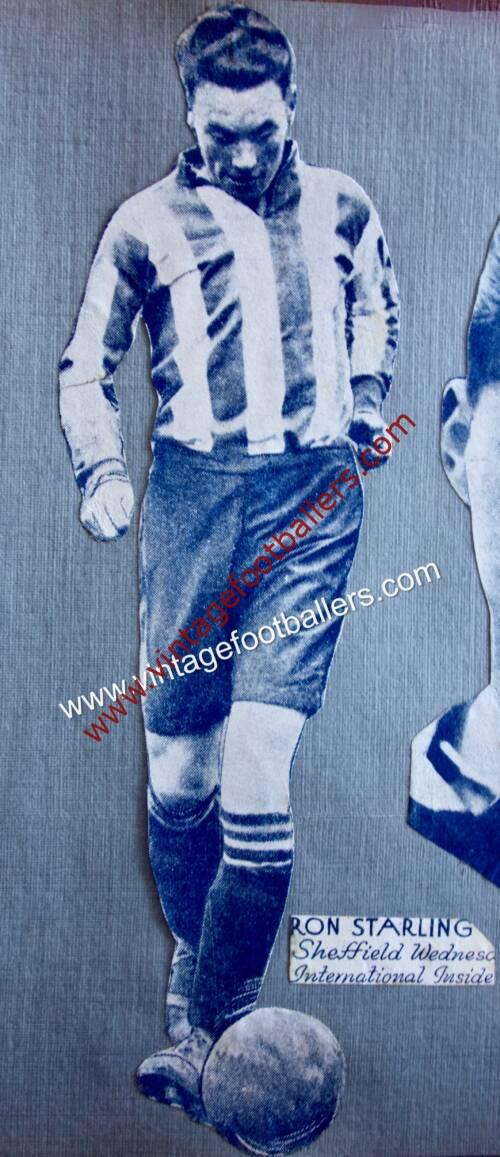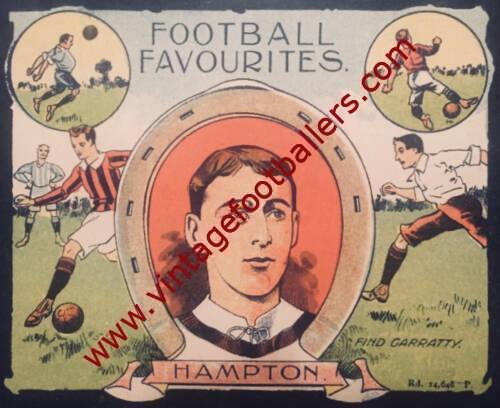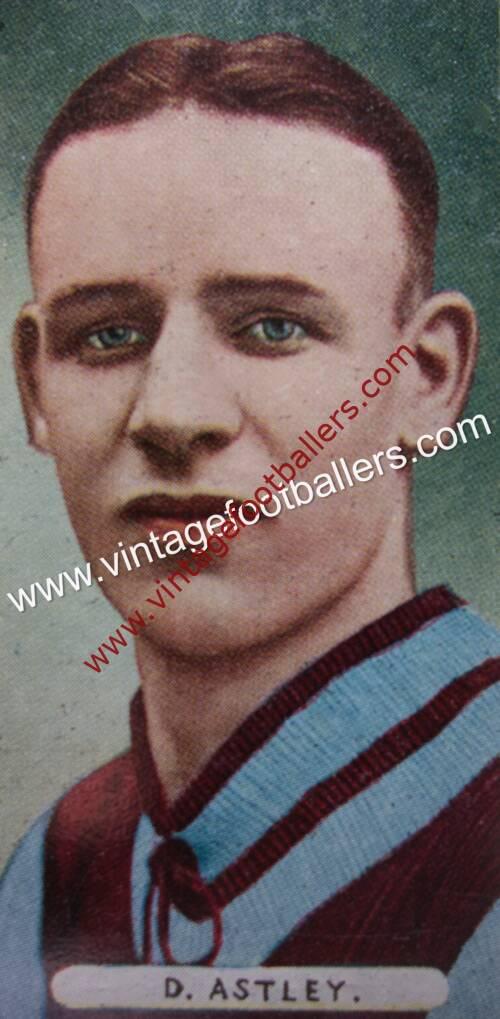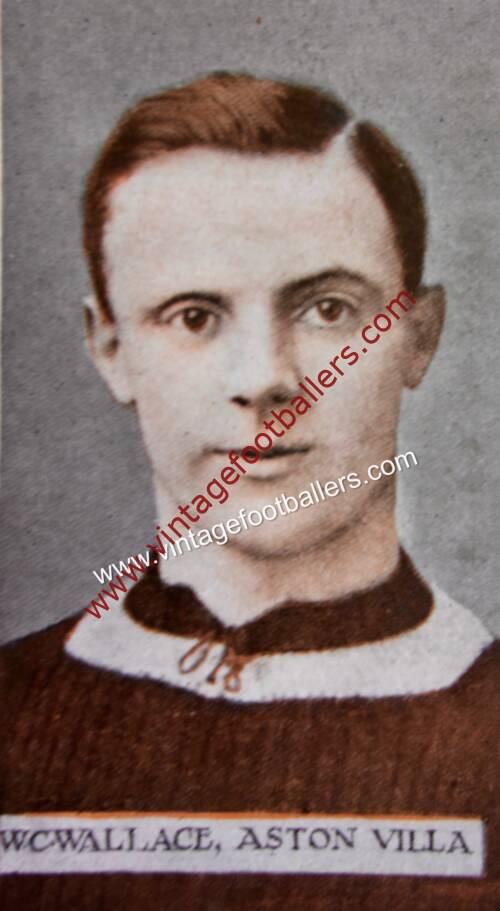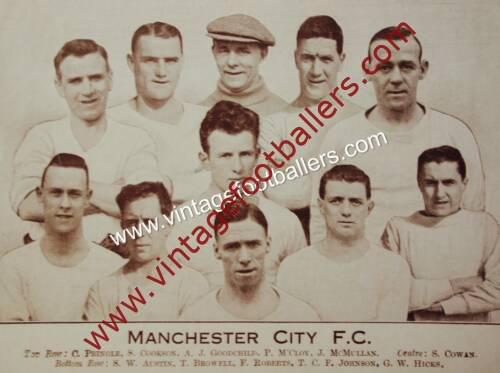Please choose your photo size from the drop down menu below.
If you wish your photo to be framed please select Yes.
Note: 16″x 20″not available in a frame.
Images can also be added to accessories. To order please follow these links
£8.95 – £49.95
Please choose your photo size from the drop down menu below.
If you wish your photo to be framed please select Yes.
Note: 16″x 20″not available in a frame.
Images can also be added to accessories. To order please follow these links
Newcastle upon Tyne born inside right Ronnie Starling played for Durham Schools and Northern Alliance clubs Usworth Colliery in 1924 and Washington Colliery in 1925. Spotted by manager Billy McCracken, he joined Second Division Hull City initially as an amateur later in 1925, turning professional in October 1926. He made his Football League debut against Preston North End in September 1927 and established himself as a regular in The Tigers’ first eleven from March 1928. He was a member of Hull’s team that reached the 1930 FA Cup semi final where they were beaten 1-0 in a replay by eventual winners Arsenal at Villa Park. Regarded as something of a prodigy for his exceptional ball skills, he was signed by hometown Newcastle United in May 1930 for £3,750 after 14 goals in 86 appearances on Humberside. His ball carrying ability earned him the nickname of “The Man with the Fluttering Feet”.
Starling was a regular in the Newcastle team in his first season at St James’ Park scoring 6 goals 38 appearances however the following campaign he only made 15 appearances, scoring twice, before losing his place in the side before Christmas to new signing Harry McMenemy. He took no part all in Newcastle’s FA Cup run which saw the team beat Arsenal 2-1 in the FA Cup Final and on 25th June 1932 he signed for Sheffield Wednesday in a £3,250 deal. During his five seasons at Wednesday they twice finished third in the League Championship, and he captained the team that won the FA Cup in 1935 when they defeated West Bromwich Albion 4-2 in the Final at Wembley, In April 1933, he won his first England cap, playing at inside right in the 2-1 defeat by Scotland at Hampden Park, Glasgow.
As Wednesday struggled near the foot of the First Division table in a season that would see their relegation, he was sold to Second Division Aston Villa on 6th January 1937 for £6,900 having scored 31 goals in 194 appearances for The Owls, and at Villa Park he won his second England cap in April 1937 in a 3-1 defeat to Scotland at Hampden. In 1937-38 he was an ever present as Aston Villa won the Second Division Championship to return to the top flight, also reaching the FA Cup semi final where they lost 2-1 to eventual winners Preston North End at Bramall Lane, Sheffield, so completing appearances in the semi finals with four different clubs. He played both sides of the Second World War for Villa, albeit managing only two further appearances post war, and during the War he helped Villa win the Football League (North) in 1944 as well as guesting for Solihull Town, Coventry City, Northampton Town, Walsall and Sheffield Wednesday during the conflict, as well as coaching the Villa Colts in 1946-47.
After 12 goals in 101 appearances for Aston Villa he joined Beighton Miners Welfare in 1947, finally retiring as a player in July 1948, aged 39. He then became coach of Nottingham Forest, sometimes turning out for their Central Alliance and Midland League teams, before leaving the game altogether in June 1950.
NB in the photograph Starling is second from the right with team mates (l-r) Frank Broome, Freddie Haycock, Frank Shell, and Eric Houghton.
| Weight | N/A |
|---|
